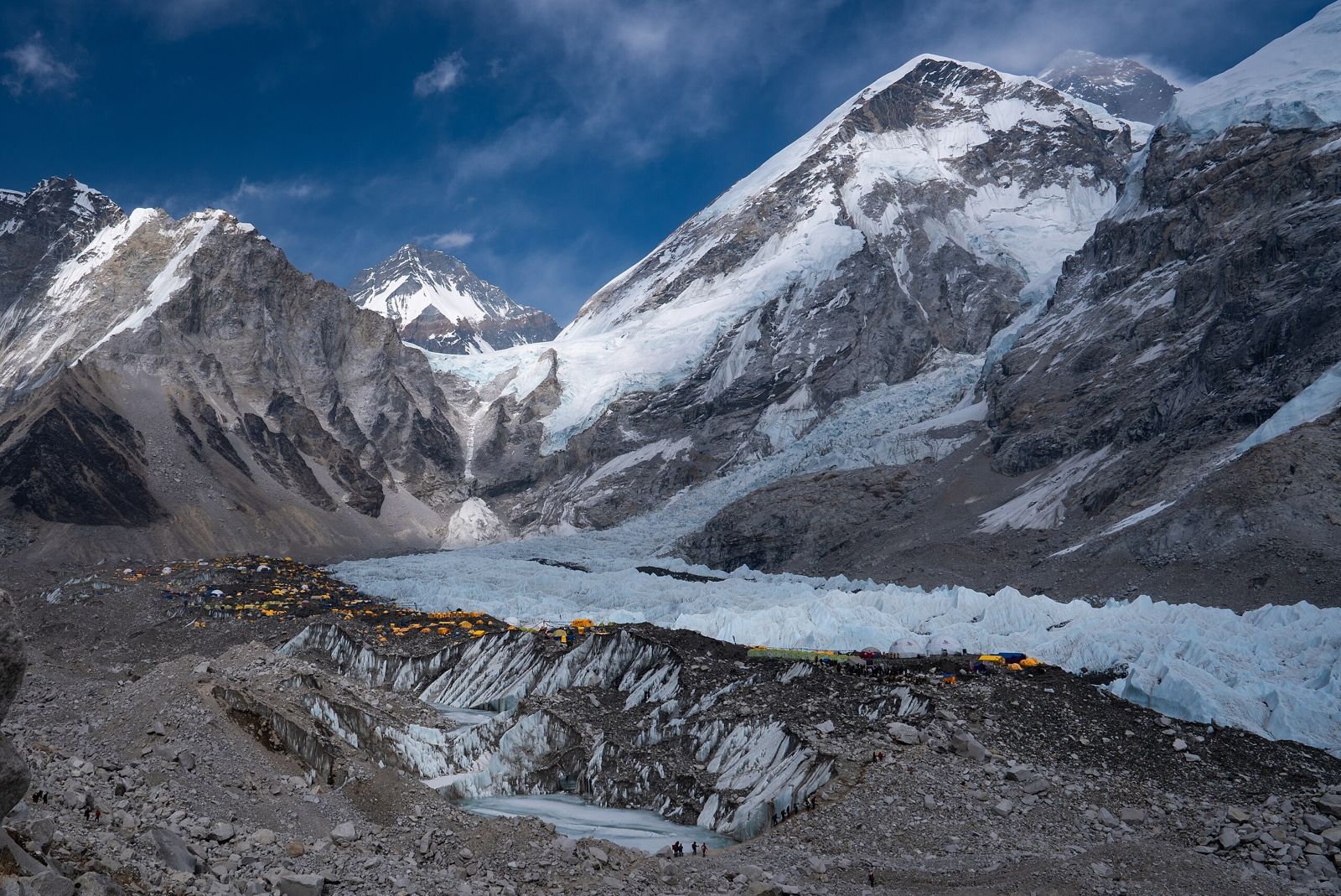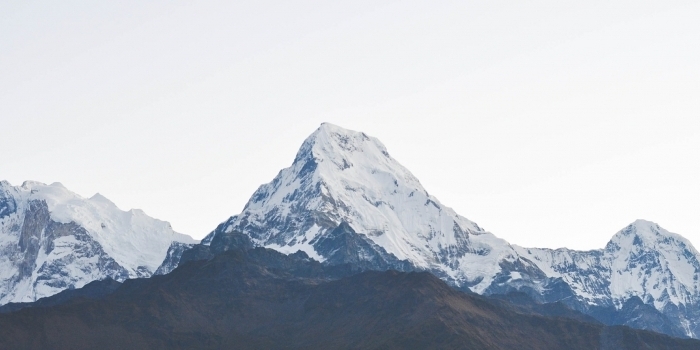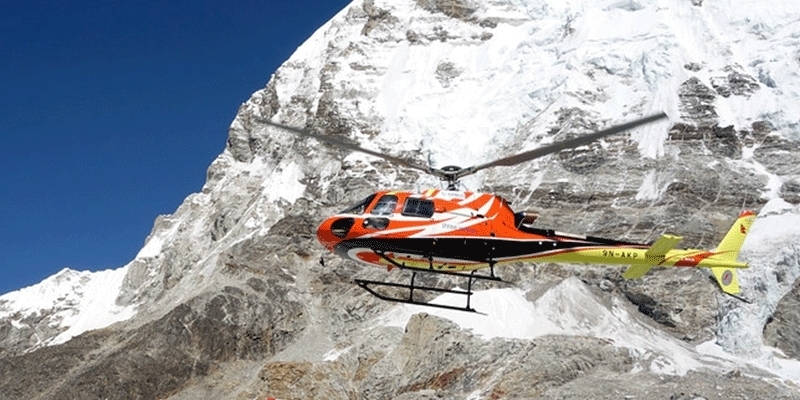Everest base camp trek vs Annapurna base camp trek
Trekking in Nepal is so adventurous tough and cannot be underestimated regarding the world’s highest peak Mount Everest and Annapurna.


A Sherpa guide is more than just a companion; they are your gateway to an authentic Himalayan experience. With their local expertise and in-depth knowledge of the Khumbu Valley, they can provide invaluable insights into the region's rich culture and history.
Trekking in the Himalayas can be a challenging but rewarding experience. By choosing a Sherpa guide, you can enhance your safety and minimize risks associated with high-altitude trekking. Our experienced guides are trained to identify potential hazards, administer first aid, and assist with emergency evacuations.
Beyond safety, a Sherpa guide can also elevate your cultural experience. Learn about the unique traditions, customs, and beliefs of the Sherpa people, and gain a deeper appreciation for their resilience and adaptability.
Personalized Itineraries Our flexible itineraries are designed to cater to your specific needs and preferences. Whether you're a seasoned trekker or a first-time adventurer, our guides can create a customized experience that suits your fitness level and interests.
By choosing a Sherpa guide, you're not just hiring a professional; you're gaining a trusted companion who will share your journey and make your Himalayan adventure truly unforgettable.

Embark on a once-in-a-lifetime adventure with our expertly crafted Everest Base Camp Trek itinerary. This 14-day journey will take you through stunning landscapes, vibrant Sherpa villages, and challenging terrains, culminating in the ultimate reward: standing at the foot of the world's highest peak.
Day 1-2: Fly to Lukla and Trek to Phakding Your Himalayan adventure begins with a scenic flight to the picturesque town of Lukla. After a warm welcome, we embark on a moderate trek to Phakding, gradually acclimatizing to the altitude.
Day 3-4: Acclimatize in Namche Bazaar, the Sherpa Capital We spend two days in the charming Sherpa village of Namche Bazaar to acclimatize to the increasing altitude. This bustling town offers stunning mountain views, cultural experiences, and a chance to explore local markets.
Day 5-6: Trek to Dingboche, a Picturesque Village From Namche Bazaar, we continue our trek to Dingboche, a picturesque village nestled amidst towering peaks. The trail offers breathtaking views of the Khumbu Valley and iconic mountains like Everest, Lhotse, and Nuptse.
Day 7: Trek to Lobuche, a High-Altitude Village The trail to Lobuche takes us through rugged terrain and offers panoramic views of the Khumbu Icefall. As we ascend higher, we'll experience the unique beauty of the Himalayan landscape.
Day 8: Summit Kala Patthar, a Panoramic Peak Today, we embark on a challenging but rewarding ascent to Kala Patthar, a vantage point offering breathtaking views of Everest, Lhotse, and Nuptse. The panoramic vista from the summit is truly awe-inspiring.
Day 9: Trek to Gorak Shep and Visit Everest Base Camp We trek to Gorak Shep, the last inhabited settlement before Everest Base Camp. From here, we embark on a short but exhilarating journey to the base camp itself, standing in awe of the mighty mountain.
Day 10-12: Trek Back to Namche Bazaar and Pheriche for Acclimatization As we descend, we'll spend a few days in Namche Bazaar and Pheriche to acclimatize and rest our bodies. This gradual descent helps prevent altitude sickness and ensures a comfortable return journey.
Day 13-14: Trek to Lukla and Fly Back to Kathmandu We conclude our Everest Base Camp Trek with a final trek to Lukla, followed by a scenic flight back to Kathmandu, where we'll celebrate our accomplishment and reflect on the incredible journey.

To ensure a safe and enjoyable Everest Base Camp Trek, follow these essential tips:
Physical Fitness
Packing Essentials
Acclimatization
Hydration and Nutrition
Permits and Visa
Best Time to Trek The best time to trek to Everest Base Camp is during the spring (March-May) and autumn (September-November) seasons. These months offer clear skies, stable weather, and stunning mountain views.
By following these tips and choosing a reputable trekking company with experienced Sherpa guides, you can embark on a safe and unforgettable Everest Base Camp Trek.

Ready to embark on the adventure of a lifetime? Book your Everest Base Camp Trek with our expert Sherpa guides. We offer personalized itineraries, experienced support, and a commitment to ensuring your safety and satisfaction.
Why Choose Us?
Don't miss the opportunity to witness the breathtaking beauty of the Himalayas. Contact us today to book your Everest Base Camp Trek and create memories that will last a lifetime.
Additional Tips for a Memorable Everest Base Camp Trek
By following these tips and choosing a reputable trekking company, you can ensure a successful and unforgettable Everest Base Camp Trek.
Additional Considerations for a Successful Everest Base Camp Trek
In addition to the tips mentioned above, here are some additional considerations to ensure a successful Everest Base Camp Trek:
Insurance:
Mental Preparation:
Physical Conditioning:
Environmental Impact:
By considering these additional factors and following the advice of experienced guides, you can embark on a truly unforgettable Everest Base Camp Trek.
Conclusion
Embarking on an Everest Base Camp Trek is an extraordinary adventure that will challenge your limits and reward you with unforgettable memories. By following the tips and advice provided in this guide, you can increase your chances of a successful and enjoyable trek.
Remember to choose a reputable trekking company with experienced Sherpa guides, prioritize your safety, and respect the environment. With careful planning and preparation, you can fulfill your dream of standing at the foot of the world's highest peak.
Start planning your Everest Base Camp Trek today and experience the magic of the Himalayas!
Q: Is the Everest Base Camp Trek difficult?
A: While the Everest Base Camp Trek is challenging, it is achievable for individuals with a reasonable level of fitness and a strong determination. The key to success is proper acclimatization, a positive mindset, and a willingness to push your limits.
Q: Do I need prior trekking experience? A: While some prior trekking experience can be beneficial, it's not strictly necessary. However, a good level of physical fitness and a strong mental attitude are essential.
Q: What is the cost of the Everest Base Camp Trek? A: The cost of the Everest Base Camp Trek can vary depending on factors such as group size, guide services, accommodation, and transportation. It's recommended to research and compare prices from different trekking companies.
Q: What is the best time to trek to Everest Base Camp? A: The best times to trek to Everest Base Camp are during the spring (March-May) and autumn (September-November) seasons. These periods offer stable weather conditions, clear skies, and stunning mountain views.
Q: What is the altitude sickness risk on the Everest Base Camp Trek? A: Altitude sickness is a potential risk, especially at higher altitudes. To minimize the risk, it's crucial to ascend gradually, listen to your body, and stay hydrated. Our experienced Sherpa guides will monitor your health closely and provide necessary advice.
Q: What are the safety measures in place during the trek? A: Our team prioritizes safety and well-being. We employ experienced Sherpa guides who are trained in first aid and emergency procedures. Additionally, we have access to emergency medical facilities and evacuation services.
By following our guidelines, trekking with experienced guides, and listening to your body, you can significantly reduce the risk of altitude sickness and enjoy a safe and memorable Everest Base Camp Trek.

Trekking in Nepal is so adventurous tough and cannot be underestimated regarding the world’s highest peak Mount Everest and Annapurna.

Overcame the weather during your Everest Base Camp trek! This guide reveals the ever-changing Khumbu weather, from the best hiking seasons to unpredic...

This captivating journey takes you on a thrilling helicopter adventure to Everest Base Camp (EBC). Soar above the majestic Himalayas, witnessing breat...
